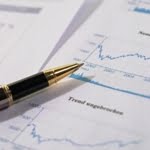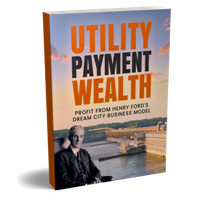
Nevertheless, according to Bond King Bill Gross the outcome of the election will make no difference…
“Obama/Romney, Romney/Obama – the most important election of our lifetime? Fact is they’re all the same – bought and paid for with the same money. Ours is a country of the SuperPAC, by the SuperPAC, and for the SuperPAC. The ‘people’ are merely election-day pawns, pulling a Democratic or Republican lever that will deliver the same results every four years.”
Gross may have a point… But, election-day pawn or not, we still vote for who we want to win. Quite frankly, we’re tired of President Obama. We’re tired of his big ears, his March Madness predictions, the way he throws a baseball, Joe Biden, his mom jeans, his White House beer summit, Jay Carney, repeatedly being told how hip he is by the media when he’s really a dork, and the condescending way he talks.
We’ll take our chances with Romney. No doubt, it will take a small miracle for him to get elected. For Romney hasn’t promise enough handouts to the mob. But regardless of who wins, we’re not here to dwell on politics…there’s enough of that going on elsewhere already…
Policies of Asset Price Elevation
We’re here to make sense of the economy, financial markets, and government policies that have very real consequences to you and your money. So with that out of the way, we’ll return to Gross for some thoughts on what he really knows best – financial markets.
“By lowering interest rates to near zero through Fed Funds policy and quantitative easing, Ben Bernanke and his fellow central bankers are trying to force all of us to spend money,” says Gross.
“In the past three years of quantitative easing and financial repression, can we see a noticeable effect on investment as opposed to consumption? Is the Bernanke model working or is the [easy money] being spent on consumption? At first blush, an observer might vote for the Bernanke model. After all, the stock market has doubled in three-plus years, risk spreads are at historical lows, and housing prices are moving up – 10 percent higher in Southern California alone.
“Yet the real economy itself seems no different…. Surely by now, if the Bernanke model was as advertised, we would be seeing a pickup in investment as a percentage of GDP and a willingness to start saving ‘seed corn’ as opposed to eating ‘caramel corn.’”
Unfortunately, notes Gross, “All of the money being created and freed up is elevating asset prices, but those prices are not causing corporations to invest in future production.”
Economic Dependency and Looming Disaster
For investors, the rise in asset prices may be encouraging. They may even make people feel wealthier, smarter, and younger too. But if the rise in asset prices is not accompanied by real economic growth…disaster looms and future losses will ultimately occur.
“Investors should recognize that asset and currency prices ultimately rest on the ability of a real economy to grow. If growth cannot be boosted by monetary policy, and fiscal policy is in the hands of a plutocracy more concerned about immediate profits as opposed to long-term vitality, then no Genie […] can make a difference. If, therefore, real economic growth is stunted in the United States and globally, then portfolio strategies should acknowledge bite-sized future returns and the growing risk that the negative consequences of misguided monetary and fiscal policy might lead to disruptive financial markets at some future point.”
In other words, enjoy the stock market run up over the last several years while it lasts. But don’t be surprised when the bottom falls out again. It’s bound to happen.
The simple fact is the great big monetary policy experiment since the 2008 financial crisis has failed to produce real economic growth. On the other hand, it has made the financial system and the economy dependent upon ongoing money supply expansion. What would happen if the quantitative easings were suddenly stopped?
“You can’t walk back at this stage,” said Gross’s Pimco cohort Mohamed A. El-Erian. “The best you can do is slow it and try to deal with the collateral damage. If you try to walk back too quickly, then the likelihood is that this country ends up in recession.”
Here at the Economic Prism we believe recession is inescapable. In fact, based on many people’s experiences, we’re already in one.
Sincerely,
MN Gordon
for Economic Prism
Return from Economic Dependency and Looming Disaster to Economic Prism




